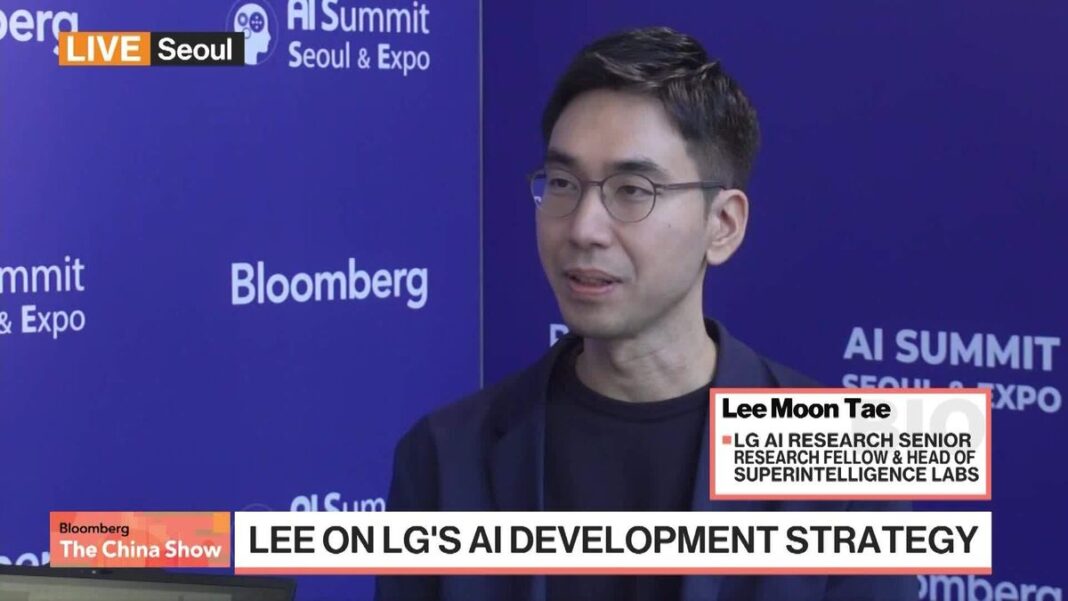Unpacking AI Development Strategies: Insights from Lee Moon Tae
At the recent AI Seoul Summit, Lee Moon Tae, a Senior Research Fellow and Head of Superintelligence Labs at LG AI Research, shared invaluable insights into South Korea’s AI capabilities and the country’s development strategies in this rapidly evolving field. Speaking with Shery Ahn on “Bloomberg: The China Show,” Tae provided a comprehensive view of how South Korea aims to position itself in the global AI landscape.
The Landscape of South Korea’s AI Initiatives
Lee Moon Tae highlighted South Korea’s proactive approach to AI development, emphasizing that the nation has recognized AI not merely as a tool but as a transformative force across various industries. The government and private sector have committed significant resources toward creating a robust AI ecosystem. This commitment is evident in initiatives designed to promote research, increase funding, and foster collaboration between technology firms and academic institutions.
Strategic Partnerships and Investments
One of the key points Tae made was the importance of strategic partnerships. South Korean firms are increasingly collaborating with international tech giants to accelerate AI advancements. These alliances allow for knowledge exchange and technology transfer, which can significantly enhance local capabilities. LG AI Research, under Tae’s leadership, is actively pursuing such partnerships, aiming to integrate global insights into its strategies while maintaining a focus on local application.
Focus on Human-Centric AI
A significant theme in Tae’s discussion was the focus on human-centric AI development. He emphasized that as AI systems become more integrated into daily life, ethical considerations and user experience should be at the forefront of development efforts. This involves prioritizing transparency, accountability, and user empowerment. Such a human-centered approach not only builds trust in AI technologies but ensures they cater effectively to societal needs.
Leveraging Big Data and Infrastructure
South Korea’s advanced digital infrastructure provides a distinct advantage in AI development. Tae pointed out that the country possesses vast amounts of data, which is crucial for training AI models. By leveraging this data, along with high-speed internet and cloud computing resources, South Korea can enhance the learning capabilities of AI systems. This data-driven strategy positions the nation to explore innovative solutions across fields, from healthcare to urban planning.
Building a Skilled Workforce
Tae also addressed the necessity of education and training in building a skilled AI workforce. He mentioned that for South Korea to remain competitive, there must be a continuous investment in education programs specializing in AI and machine learning. Initiatives targeting both young students and professionals are crucial for ensuring a pipeline of talent that is equipped to tackle contemporary AI challenges.
The Role of Government Policy
Governmental support has been pivotal in advancing South Korea’s AI agenda. Tae explained that policies aimed at fostering innovation, such as funding for startups and incentives for research and development, have created a favorable environment for AI growth. These policies not only facilitate the emergence of new technologies but also encourage existing companies to innovate and adopt AI practices.
Challenges on the Horizon
While South Korea is making significant strides, Tae candidly acknowledged the challenges that lie ahead. Competition from other countries, particularly China and the U.S., poses a significant threat. Furthermore, the speed of technological advancements means that South Korea must adapt quickly to remain relevant. To address these challenges, a concerted effort focusing on continuous learning and innovation is essential.
Future Visions for AI in South Korea
Looking ahead, Lee Moon Tae envisions a future where AI will play an even more integral role in enhancing quality of life. He articulated a dream of smart cities where AI optimizes resources, enhances public safety, and improves overall urban living conditions. Such aspirations reflect a broader desire not just for technological advancement, but for a future where technology and human life are harmoniously intertwined.
By sharing these insights, Lee Moon Tae provides a comprehensive perspective on South Korea’s strategic approach to AI, illustrating both its ambition and the thoughtful planning necessary to achieve its goals. Through initiatives emphasizing collaboration, human-centric design, and a robust education system, South Korea is poised to carve out a significant niche in the global AI arena.



